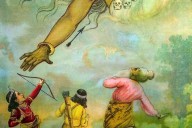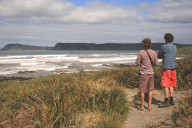Stop for a moment.
Before diving in and racing through 2015, give some time and space to finding your antidote to busy-ness.
If you are like most modern urban-dwellers, the last few months of 2014 would have surged upon you quicker than you were ready for. Too quick to get ‘all those things done’ you had planned – even though the tail of the year scurries off in the same way every annum.
As so often feels the case, we greet mid-December with a mixture of exhaustion and bewilderment, managing somehow to have accomplished the essential things we ‘had’ to get done and, at the same time realizing, with a sense of relief or possibly futility, that ‘all the other stuff’ can wait until the following year. Maybe there is even the sheepish realization that those ‘important’ things did not really deserve a place to run around in our field of attention after all.
Then its late December, a time that gives us tacit permission to finally exhale, as if we had dived into the year begin and held our breath throughout as we flapped around doing whatever it is we do do do. It is a time for personal renewal and appreciation for the life that, for the rest of the year, quietly and ceaselessly unfolds around us as we perpetually busy ourselves, disconnecting from the subtle everyday beauty infusing the world.
January arrives and we emerge from the downtime that was December’s dressing room. We are now psyched and ready for another year. Stepping out of our cosy New Year robes, we reveal our competitive attire as the world watches on (or so it feels). We stand up on the blocks and gaze down at the linear lane laid out before us, focused on the race of the year ahead. We have set our priorities, have dreamt up our 2015 goals and, this time round, we will want to finish ahead of the pack, achieving records if we can. We breathe in. Take your marks, get set…
February! … and we are off. And we dive in with the other competitors, picking up our pace among the frenzied pack of life-goers. In this race-space, the calls and cries of the outside world are merely muffled noise. We are focused on the task ahead, reaching the end of this lap around the sun in quickest possible time. Between multiple strokes, we will suck up short breathes, but not until we again touch the wall of December will we glance up, review the scoreboard and assess our performance for the annual dash that was 2015.
I was reminded of these thoughts – and felt an urge to pen them to paper – upon hearing an excerpt of poet David Whyte’s talk entitled “The antidote to exhaustion is not rest”. David recalls his own experiences in working in that compelling yet often stressful dynamic of an NGO or other idealistic organization where one is constantly trying to save a portion of the world. And because this was not achieved in the last meeting, there is a compulsion to work harder at saving it next time round.
The instinctive response is to therefore speed up in order to “save the world”… but, as Whyte laments, the great tragedy being that soon we cannot recognize anyone or anything that is not travelling at the speed we are. We become blind to those travelling in the longer cycles of life and, eventually, we begin to resent and then fail to find compassion for those going too slow for us (e.g. the sick, elderly, impoverished, disadvantaged or, alternatively, those with different intellectual or cultural backgrounds and priorities).
David Whyte: “The antidote to exhaustion is not rest” [excerpt]
The call to stop, breathe and ‘be’ is timeless advice, and you are likely to have heard it time and again. But, in the face of systemic routines and pressures, enacting it is an all too different quest. And indeed with every year that passes, I am reminded of the “skimming or stilling” poem I penned several years ago as December careened toward me in a particularly busy period of my life. As the poem suggests, I felt myself as that skimming stone.
It was time to stop, to be more like a rock. Not only to rest and become more grounded but to be able to hold firm in the face of the currents of busy-ness or distraction that may be ready to dislodge and unearth that sense of purpose one finds when in stillness.
Whyte believes that there is also another antidote to exhaustion:
“Whole-heartedness”
Let that sit for a while.











Be the first to share a comment